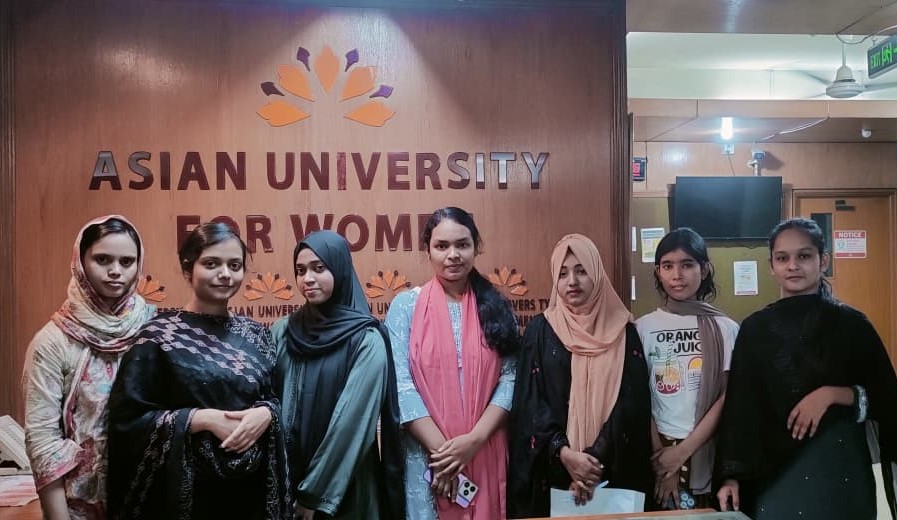The year 1971 marks for all of us our tryst with destiny. It also stands as a milestone that reflects the dream as seen by Bangabandhu and millions of others who became martyrs for this glorious cause.
December 16th of 2015 marked the 44th anniversary of the victory of the freedom-loving people of Bangladesh in their quest for an independent homeland where the Bangali nation could flourish within the national paradigm of their unique culture, language, traditions and promote their socio-economic welfare. The year 1971 marks for all of us our tryst with destiny. It also stands as a milestone that reflects the dream as seen by Bangabandhu and millions of others who became martyrs for this glorious cause.
The torch that was lit on 26 March, 1971 was snuffed out on 15 August, 1975. The dream did not however fade away. It took 21 years to re-surface through the coming to power of the Bangladesh Awami League in 1996 under the leadership of Sheikh Hasina. The next five years till 2001 saw her government undertake important initiatives related to agriculture, resolution of the on-going conflict in the Chittagong Hill Tracts in 1997 and creation of important alternatives both in the electronic and broadcast media and in the use of mobile phone connectivity. This was reflected in the granting of license, for the first time to a private Television Channel- ‘Ekushey TV’ so that the viewers could see in real time reports on activities within the country which might be different from what was being aired by the government television (BTV) channel. This created healthy competition and assisted in promoting good governance. The other important initiative was the granting of license to Norwegian mobile phone operator- Telenor to start their cell phone operations as Grameen Phone. This decision ended the monopoly that had existed till then of ‘City Cell’, a company established under the patronage of the Bangladesh Nationalist Party who had ruled the country between 1991 and 1996. It may be noted here that this Norwegian company has continued to grow over the last decade and half and now has more than 50 million subscribers in this country.
This process of opening doors to healthy competition has continued. It has resulted in the granting of licenses to nearly 30 Television companies and several FM radio stations to function within the private sector in Bangladesh. Fourteen Community Radio Stations have also started functioning all over the country. This encouragement for the media to expand its activities has also included the emergence of many additional daily newspapers and digital news portals.
A similar trend has also been seen in the domain of mobile phones. The total number of cell phone users in Bangladesh has grown from over 52 million subscribers/ users (when Sheikh Hasina returned to power in January, 2009) to nearly 130 million. The number of Mobile Phone companies has also increased and now includes others like Robi, Banglalink and Airtel. They provide effective connectivity between the rural and urban areas as well as between expatriate Bangladeshis working abroad and their family members they have left behind in Bangladesh. It also acts as the platform for those interested in accessing digital technology (internet) and social media. The increase in the numbers of users in their own way reflects the inherent growth in our standard of living. It has, also as fallout, facilitated the growth of trade and commerce, educational activities, economic opportunities, mobile banking and e-commerce. Sheikh Hasina deserves full credit for these forward looking steps.
This process of transformation towards more transparent, accountable and better governance was also taken forward through the passing in the first session of the newly convened Parliament in 2009 of the Right to Information Act on 29 March, 2009. It was approved by the President on 5 April, 2009 and became effective from 1 July, 2009. An Information Commission was also constituted to monitor and take steps whenever necessary for effective functioning of the entire process of accessing to information by those interested in doing so. The dynamics associated with this process has had to overcome several challenges – including bureaucratic mind-sets. The full backing of Prime Minister Hasina has enabled the responsible authorities to implement wider application of this Act and also to take quasi-judicial steps in cases of contravention.
Bangladesh has made significant progress in alleviating poverty, attaining food security, education, health and sanitation, gender mainstreaming, creation of social safety nets and ensuring of basic human rights. This gradual economic transformation under Hasina’s leadership has been acknowledged abroad and we are now widely recognized as a ‘role model’ for development. A particular case in point has been the agricultural sector, where positive gains have helped to ensure food security for our 160 million citizens. From subsistence agriculture, it has now become a mechanized, process oriented, diversified and value added example. Technology, diversity and innovation are now the hallmarks of our present day agricultural matrix.
Since 2009, when the present government assumed power, our GDP has been growing at an average, over 6% annually, export earnings have reached $32 billion, remittances have doubled to nearly $15 billion and the foreign currency reserve has crossed $27 billion. This has taken place at a time when the world has been suffering a financial recession. Bangladesh now ranks as the 37th largest economy in the world in terms of purchasing power parity (PPP). We have also experienced one of the fastest poverty reduction rates in the world with a modest resource base. We have brought down poverty from 56.7% in 1991 to 22.4% today. Bangladesh has graduated from the UNDP’s low human development category to medium, and the World Bank’s lower income country status to lower-middle income category. This trend has resulted in Goldman Sachs including Bangladesh in the list of “Next Eleven” and JP Morgan in its list of the “Emerging Five”.
The present government realized that investing in human capital was important. Consequently, since 2009, the current leadership has targeted our large young population and it is beginning to pay dividends. Particular emphasis is being given on education and health for all.
Under the National Education Policy focus has now shifted from quantity to building quality and reducing the process of drop-outs. More than 13 million students (of which 75% are girls) from poor families have also received stipends in 2015. Free education is also being made available for girls up to 12th Grade in the higher secondary level. In the beginning of 2015, over 330 million free text books were distributed by the Ministry of Education to school students. Since 2010, nearly 1.59 billion text books have been distributed. It is probably the biggest such initiative ever undertaken in the world. Mid-day meals have also been introduced in schools to enhance nutrition and productivity among the children. Madrasa education has also been upgraded with the introduction of teaching of science and technology. This has helped to raise the national functional literacy rate to 65%.
In keeping with the effort to enhance rights of women, a policy has been initiated whereby women receive collateral-free loans to help them set up small and medium enterprises. There has also been an upward trend in women getting more involved in politics, civil service, judiciary, armed forces and also in the industrial sector, particularly in the ready-made garments sector. This involvement has also had another beneficial effect- delayed marriages and also better family planning.
This emphasis on gender empowerment by the present government has led to the UNESCO Director General awarding Sheikh Hasina the “Tree of Peace” in 2014 in recognition of her efforts to promote girls’ education and women’s literacy.
To facilitate better health care in the rural areas, certain innovative steps have also been taken that are carefully monitored by the Ministry of Health and the Office of the Prime Minister. The rural population receives over 200 services from over 5,275 Digital Centres and has access to health care services from over 16,500 IT-connected Health complexes.
All these steps are being taken to ensure that no one is left behind in our shared aspiration to build a resilient, peaceful and prosperous society.
The current government also believes that sustainable development cannot be achieved in the absence of durable peace and security. In this context we have, in the international arena, in the field of foreign relations committed ourselves through the United Nations to the upholding of peace, ‘rule of law’ and the ending of any ‘culture of impunity’.
This approach has also encouraged the current Administration to attaching utmost importance to the preservation of religious harmony and tolerance that have nurtured our social fabric through the ages.
Consistent with Article 25 of our Constitution, our foreign policy has tried to reflect in its efforts the upholding of Bangladesh as a nationalist, secular and democratic state which has rejected religious extremism. The present government has in this context upheld the spirit, values and aspirations of our War of Liberation and played a responsible and contributory role within the international community.
We can justifiably take pride that in the last seven years we have been able to position ourselves in the global context. This is applicable not only in terms of image building, enhanced engagement with our neighbours, but also in adding value to our relevance in the international context. There has been a palpable dynamism characterized by well-integrated domestic and international priorities for preserving and promoting our national interests. The defining element within this matrix has been the active summit level engagement of Prime Minister Sheikh Hasina.
Bangladesh has remained engaged multilaterally for promoting peace, development, climate justice, enhanced market access as much as in setting global standards within the trade regime and also the parameters of human rights and disarmament. This has been reflected in our engagement within the United Nations, the Organization of the Islamic Conference, the Commonwealth and other fora. Our efforts have been recognized through several awards bestowed on Prime Minister Sheikh Hasina. UN Peacekeeping, Peace building and the successful completion of the Doha Development Round have also remained high in Bangladesh’s foreign policy priorities. In this context Bangladesh has also established the internationally acclaimed Institute for Peace Support Operations and Training (BIPSOT) for training peacekeepers, particularly women peacekeepers.
Bilaterally Bangladesh has sought to further expand co-operative relations. This has included broadening of inter-action with countries and regions with which it has not had direct links. Several new Missions and Sub-Missions have been opened to enhance our outreach, especially in Africa and Latin America. This has been done in the pursuit of political goodwill, market access for its expanding and diversified exports, sustained flow of FDI, newer and diversified openings for its workforce in the global market place, and technical cooperation for its development goals. It has also tried to showcase its capacity in education, training, social innovations and other sectors at the international level.
The government has also taken measures to build on its relations with its immediate neighbours to expedite the implementation of regional connectivity linking Nepal, Bhutan, India and Bangladesh, and further beyond through Myanmar, with South-East and China. These steps have taken into consideration questions related to power-grid interconnectivity, river basin management and upgradation of its ports to enable it to emerge as a regional hub. This process has been taken forward with the successful completion of the demarcation of Bangladesh’s maritime boundaries with Myanmar and India and also through the landmark conclusion of the Land Boundary Agreement and final resolution of the long-standing exchange of enclaves issue between India and Bangladesh. Political will acted as the necessary facilitator.
Considerable progress has also been achieved in the process of establishing the BCIM Economic Corridor proposed by the BCIM Forum. It will bolster cooperation between Bangladesh, China, India and Myanmar.
In addition to the SAARC context, emphasis is also being given by our government to strengthening the nexus between Bangladesh and South East Asia. This is being done through the BIMSTEC and is expected to usher in comprehensive co-operation. Consistent with this natural expansion of ties, Bangladesh has also been attaching special importance to trade, investment and security-related issues within the paradigm of partnership as envisaged under the Indian Ocean initiative of IOR-ARC.
There has also been a new thrust in Bangladesh’s relations with Western Asia and Central Asia. This has been initiated through VVIP visits to Saudi Arabia, Kuwait, Qatar, UAE and Turkey. This has helped to increase economic cooperation and promote investment in Bangladesh.
Pro-active measures have also helped to bolster trade and economic engagement with the European Union, United States and Canada. These steps have helped to identify areas whereby existing deficiencies within the Bangladeshi framework can be removed to overcome challenges. Institutional approaches are also assisting in making common efforts to fight terrorism more effective.
The last seven years have been an experience that has assisted in our image-building as a progressive country at the international level.
The writer is a former Ambassador and an analyst specialized in foreign affairs, rights to information and good governance. He can be reached at muhammadzamir0@gmail.com















